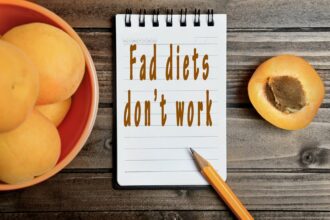People have a lot of questions about vitamins and nutrients. One common area to have questions about is deficiencies.
When you’re deficient in certain vitamins, minerals, and nutrients, it can have serious impacts on your health.
There are a lot of reasons someone might be nutrient deficient. Not including enough certain foods in your diet is one reason.
Other reasons include having chronic health conditions that impair absorption and even having too much caffeine or alcohol, both of which can interfere with nutrient absorption.
How you take your vitamins plays a role if you use supplements.
Vitamins fall into one of two categories—water- or fat-soluble. If you’re taking water-soluble vitamins, they dissolve in water, and they work best when taken on an empty stomach. For fat-soluble vitamins, it’s best to take them with a fat or a type of oil for maximum absorption.
With those things in mind, what are the nutrient deficiencies most common among the average person?
Calcium
Calcium helps you maintain strong bones, and it also plays a role in the control of nerve and muscle function. If you have very low calcium, you could notice signs like abnormal heart rhythms, tingling fingers, and numbness.
Most adults need at least 1000 mg of calcium a day. If you’re a woman over 50, you need at least 1200 mg a day, and so do men over 70.
You should try to get enough calcium from the foods you eat, like milk, yogurt, and cheese.
Dark, leafy greens also have calcium, such as kale.
Vitamin D
Vitamin D works along with calcium. The fat-soluble vitamin helps your body absorb calcium, and the vitamin also affects your immune system, nervous system, and muscles.
There are three ways to get vitamin D. One is through your skin when it’s exposed to the sun. The second is through your diet, but not that many foods have vitamin D. The third is through a supplement.
There are quite a few groups who are at risk of vitamin D deficiency, including older people, people with darker skin, and individuals with conditions like Crohn’s or celiac disease. People with obesity tend to have lower vitamin D levels because their body fat binds to the vitamin, preventing it from getting into their blood.
Individuals who had gastric bypass surgery, who have liver or kidney disease, and people with certain inflammatory diseases are also at particular risk of vitamin D deficiency.
There’s evidence that vitamin D deficiency could play a role in impairments in immune function the development of autoimmune disorders, and could lead to an increased risk of cancer.
Iron
Iron is a mineral that’s a primary component of your red blood cells. Iron binds to hemoglobin and then moves oxygen to your cells.
Dietary iron includes heme iron and non-heme iron. Heme iron is easily absorbed and comes from animal foods—especially red meat. Non-heme iron is found in animal and plant foods, and it’s not absorbed as easily as heme iron.
Being deficient in iron is one of the most common deficiencies in the world.
Anemia is one result of iron deficiency. Symptoms of iron deficiency anemia include a weakened immune system, weakness, tiredness, and problems with brain function.
Iodine
Your body needs the mineral iodine for thyroid function and for the production of your thyroid hormones. Thyroid hormones regulate your metabolic rate and help with important processes throughout your body.
It’s estimated that almost 1/3 of the population of the world is deficient in iodine.
One of the symptoms is a goiter, which is an enlarged thyroid gland. Iodine deficiency can also cause weight gain, increases in heart rate, and shortness of breath.
Vitamin A
Vitamin A is a fat-soluble vitamin that produces eye pigment for vision and helps maintain healthy skin, teeth, bones, and cellular membranes. Vitamin A deficiency is most common in developing countries but can happen to anyone.
There are two types of vitamin A that can come from your diet.
The first is preformed vitamin A, found in animal products such as meat and fish. The second is pro-vitamin A which is in plant-based foods, including fruits and vegetables. Beta carotene is the most common form of pro-vitamin A, and your body turns it into vitamin A.
If someone is deficient in vitamin A, it can lead to eye damage or blindness, and it can suppress immune function.
At the same time, having too much vitamin A can be toxic, so you have to be careful about supplementing with it.
Magnesium
Magnesium is a mineral that’s involved in hundreds of enzymatic reactions in your body. Around 70% of people in the United States under the age of 71 consume less than the recommended amount of magnesium, and low levels in the blood are linked to type 2 diabetes, osteoporosis, heart disease, and metabolic syndrome.
Reasons for magnesium deficiency can include disease, reduced digestive functionality, and inadequate intake of the mineral.
Symptoms of magnesium deficiency include abnormalities in heart rhythm, restless leg syndrome, migraines,fatigue and muscle cramps.
Long-term symptoms when you’re magnesium deficient can include high blood pressure and insulin resistance.
Vitamin B6
Vitamin B6 is a nutrient important for children’s brain development. In adults, deficiency is associated with a weakened immune system, microcytic anemia, and depression.
People with autoimmune diseases like rheumatoid arthritis often have low levels of vitamin B6. Vitamin B6 concentrations tend to go down with more increased severity of the disease. Low vitamin B6 levels in these individuals are caused by inflammation related to the disease, and that in turn creates more inflammation.
Vitamin B6 levels can be low in people with alcohol dependence
Vitamin B12
Finally, vitamin B12 is a water-soluble vitamin, also known as cobalamin. Vitamin B12 is something your body needs for nerve and brain function as well as blood formation.
Each cell in your entire body needs B12 for normal function, but you can’t produce it—you have to get it from supplements or foods.
B12 is only found in adequate amounts in animal foods, so people who don’t eat these products are at a greater risk of deficiency.










